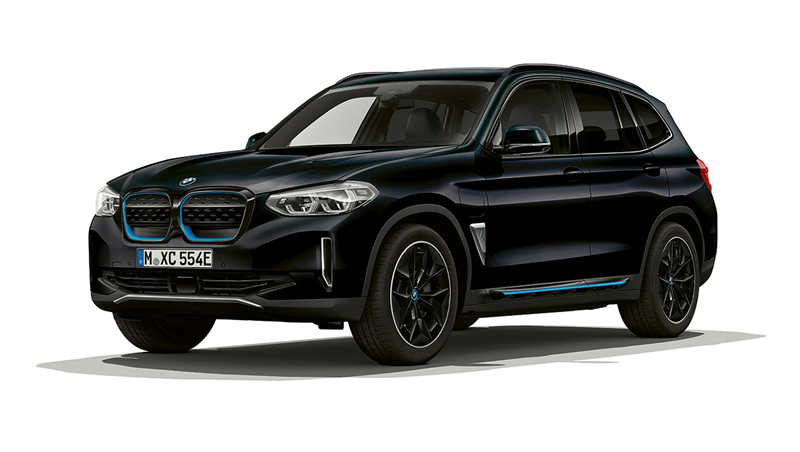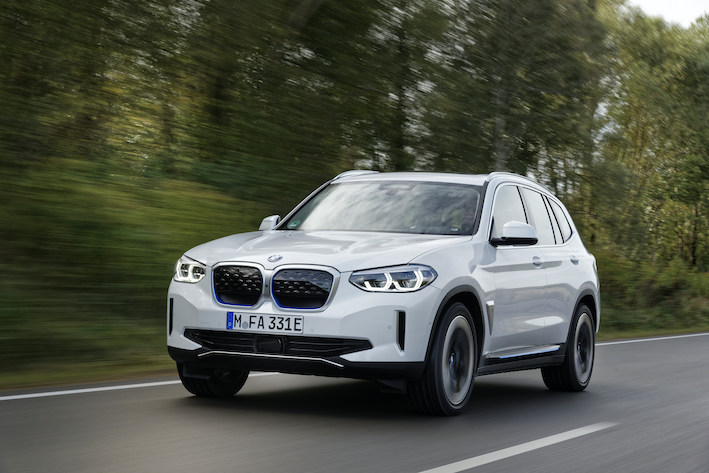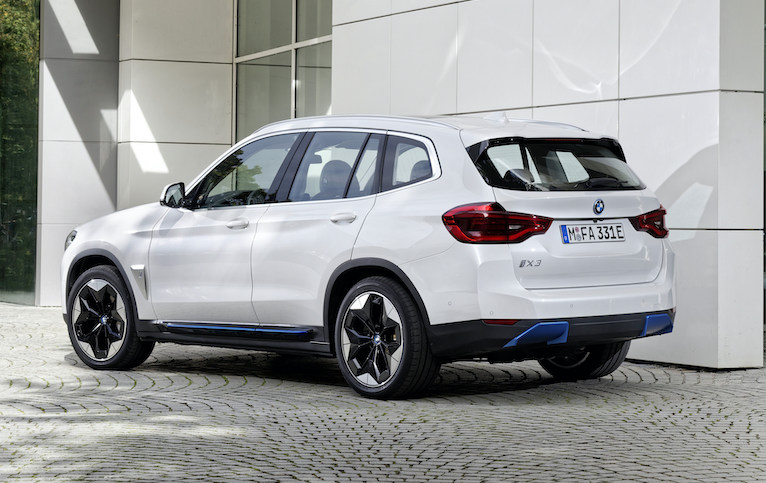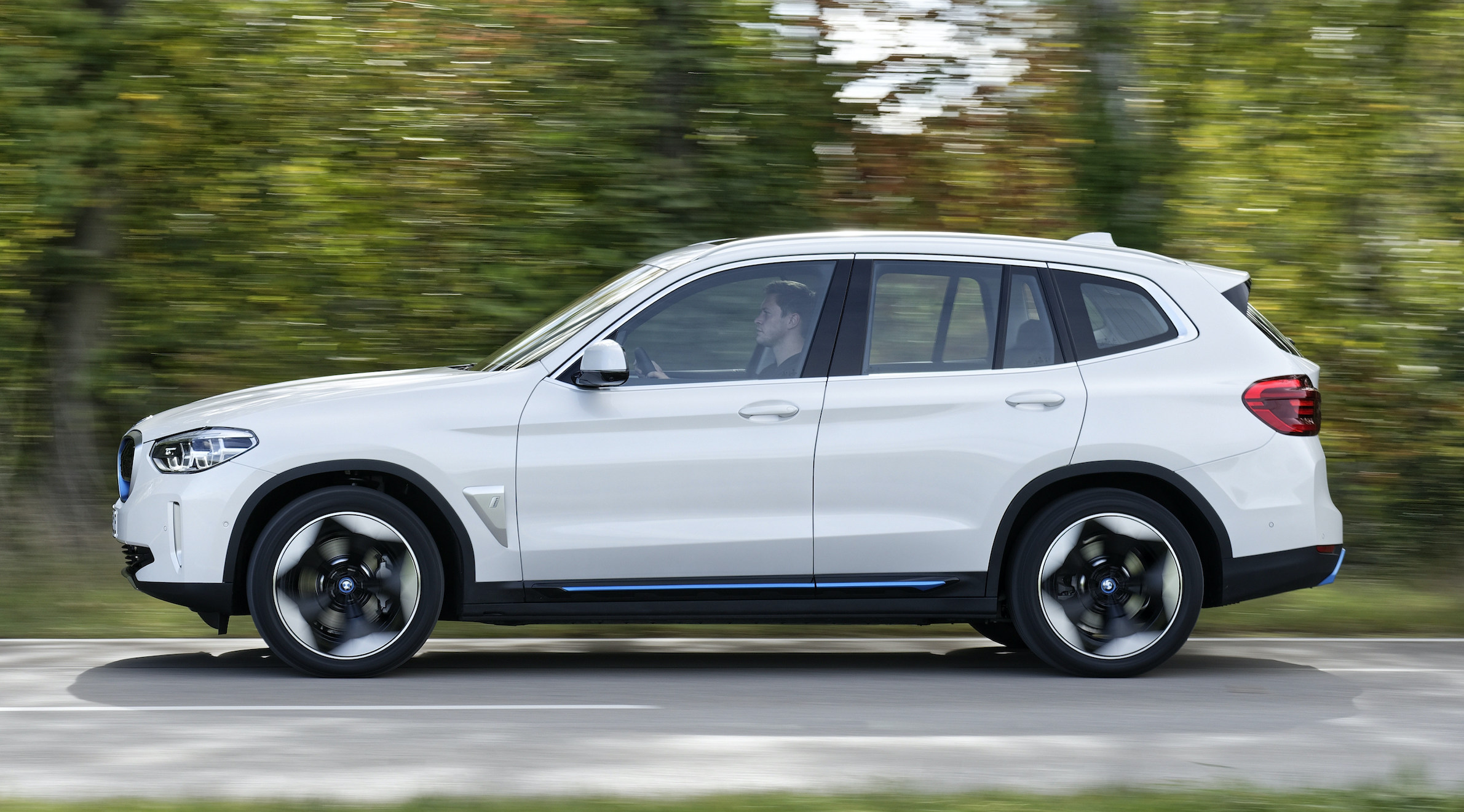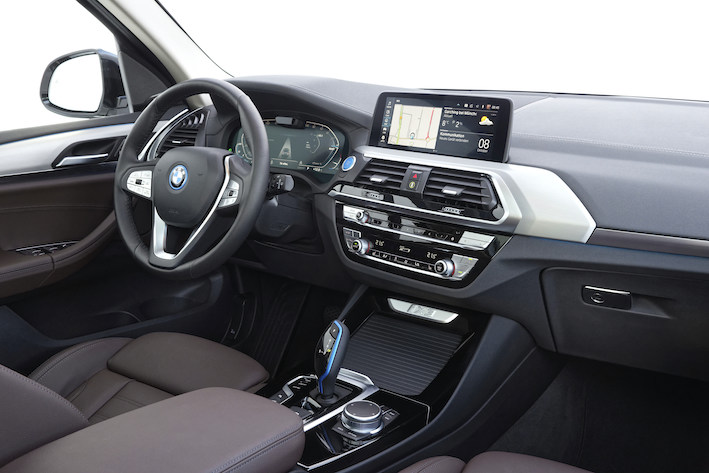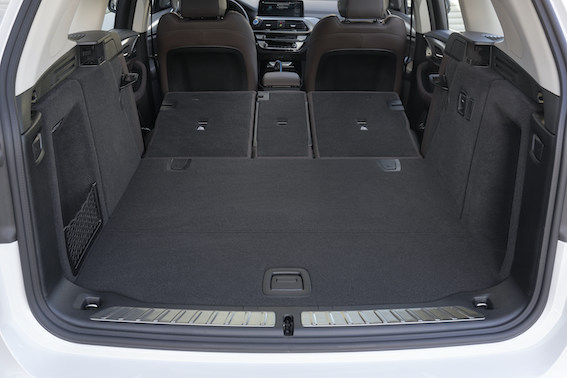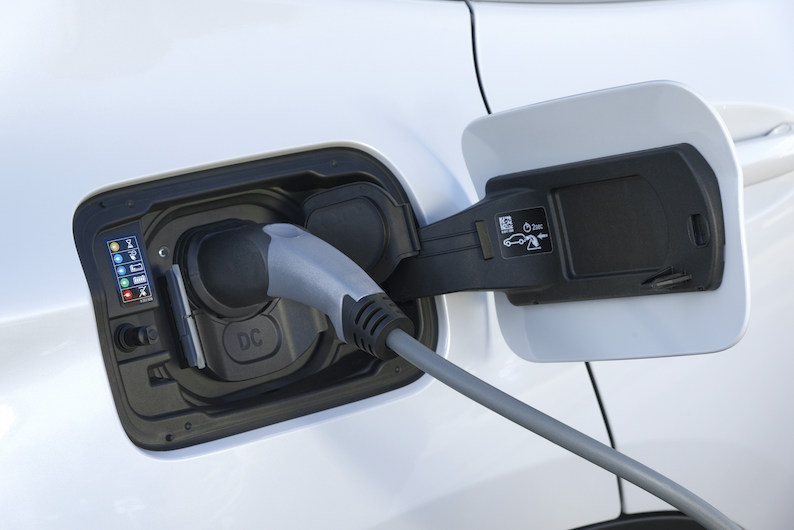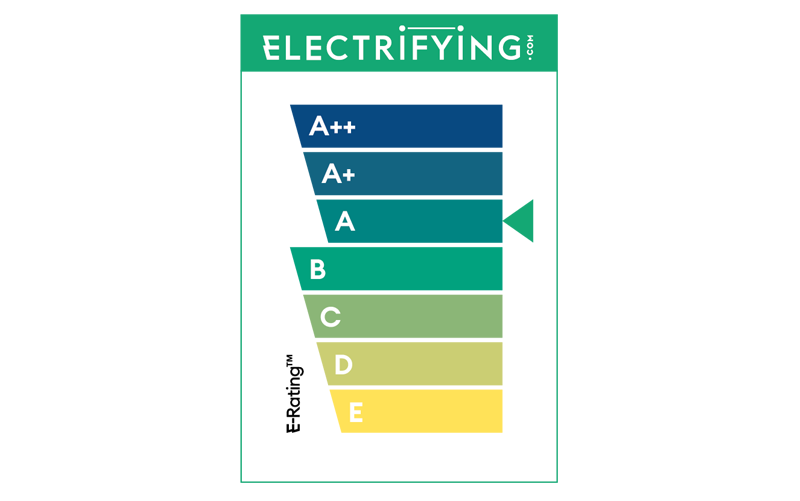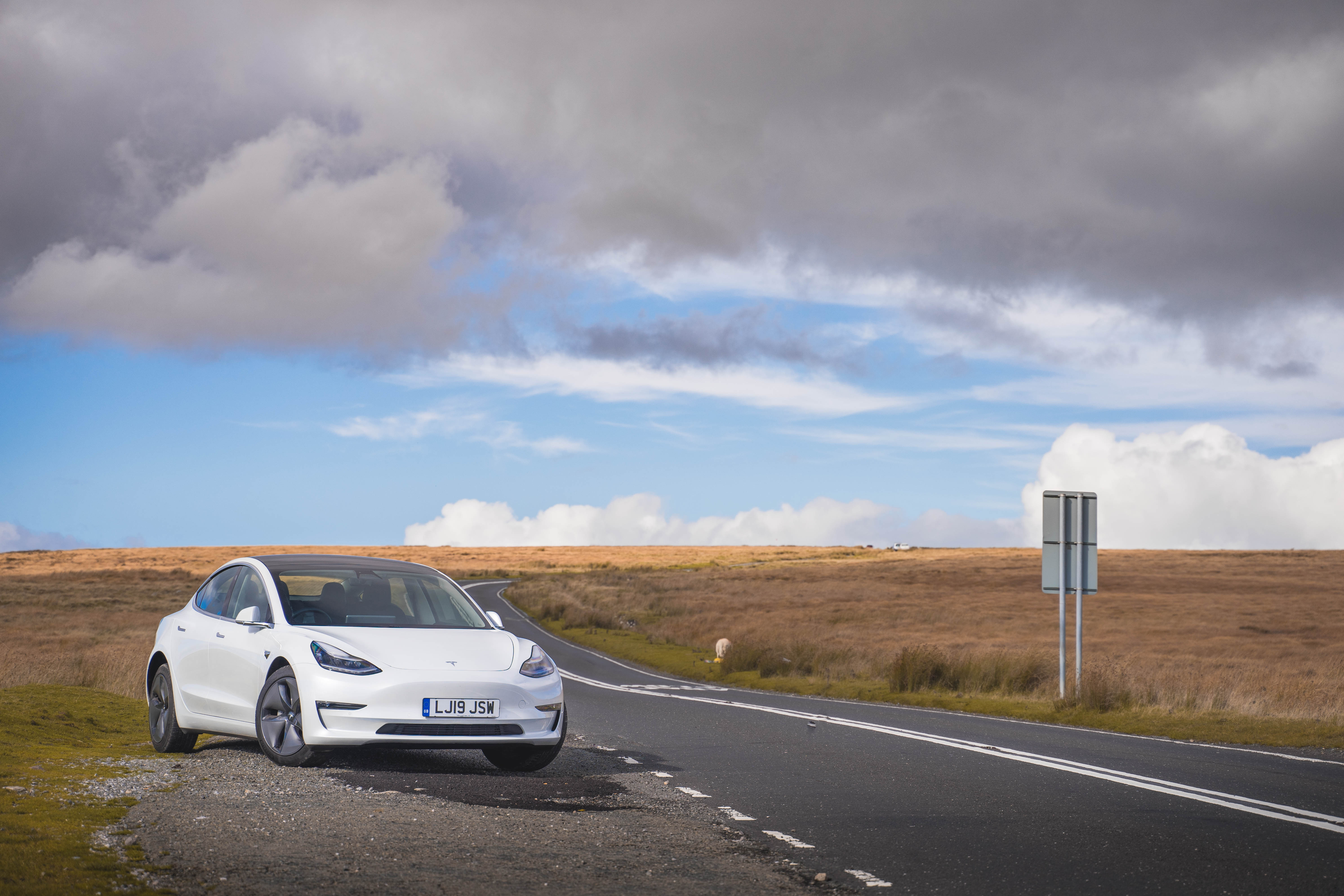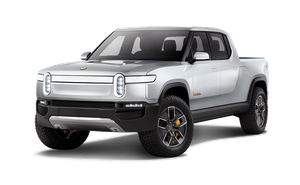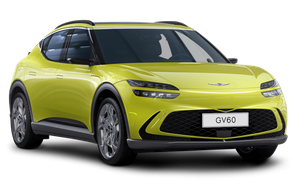Performance
Among its SUeV contemporaries the iX3’s 6.8 second 0-62mph time looks a bit tardy, with the Mercedes EQC able to achieve the same sprint in 5.1 seconds and the Audi e-tron trailing its three-pointed star rival by just 0.6 seconds.
That makes the BMW the slowest in this company, but, unless you are intent on smoking your electric SUV rivals at the traffic lights, you’re unlikely to be disappointed with how the iX3 performs. It’s quick enough for the cut and thrust of urban traffic, and fine at motorway speeds, too.
The top speed is listed at 112mph, that might be handy in Germany if you’re in a particular hurry to get to a charge point, which you will be if you’re doing such speeds.
The iX3 does without the air suspension of many of its upmarket rivals, but the standard steel springs with adaptive dampers do give it a ride that while firm, isn’t too compromised on our pot-hole ridden UK roads.
The steering is light and accurate, if lacking in what can be described as feel, but the iX3 manages its substantial mass in the bends well, with little body roll.
It’s at the more enjoyable end of the spectrum to drive, much like its X3 internal combustion-powered relations. But unlike them – and a number of its electric SUV alternatives - the iX3 is only available with rear-wheel drive. That might be something to consider if you live at the end of a farm track, but the reality is the traction is good enough with just rear-wheel drive that a typical iX3 buyer won't miss four-wheel drive. At least until it snows....












